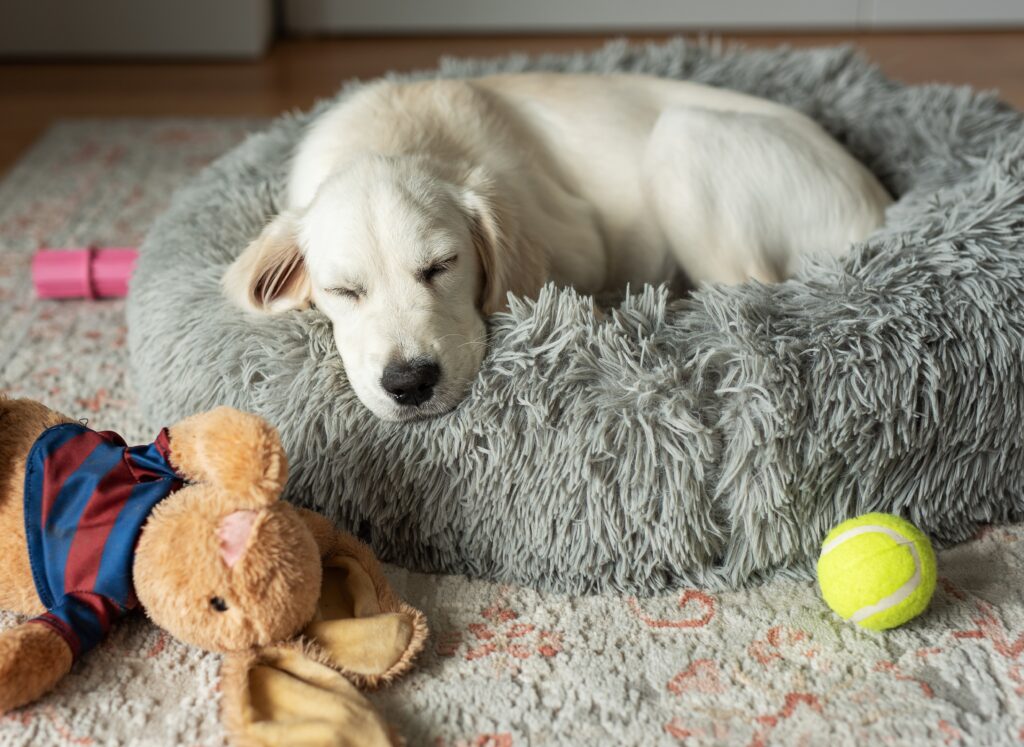Yes, 10 weeks is an appropriate age to bring a puppy home, but there are some important considerations to keep in mind for both you and the puppy’s well-being.
Why 10 Weeks Can Be a Good Age
- Critical Socialization Period
- By 10 weeks, puppies are in the midst of their critical socialization period, which usually lasts from about 3 to 14 weeks of age. During this time, they are most receptive to learning how to interact with people, animals, and different environments. Bringing a puppy home at 10 weeks gives you the opportunity to continue their socialization in a positive, controlled environment.
- Weaning and Independence
- At 10 weeks, most puppies are fully weaned from their mother and are eating solid food. They are also becoming more independent, which makes them ready to adjust to a new home and family. While they may still miss the comfort of their littermates and mother, they are starting to form attachments to humans as well.
- Basic Developmental Milestones
- By 10 weeks, puppies typically have developed some basic motor skills (running, jumping, and playing) and are more aware of their surroundings. They may have already had their first round of vaccinations and deworming, and they are starting to explore their environment with curiosity.
- Potty Training and Crate Training
- At 10 weeks, puppies are usually ready to begin basic potty training and crate training. While they are still learning bladder control, they will begin to understand the concept of going outside to relieve themselves. Starting these training processes early will help set the foundation for good habits.
Things to Consider Before Bringing a 10-Week-Old Puppy Home
- Separation from Littermates and Mother
- While 8 weeks is the ideal age for most puppies to leave their mother and littermates, 10 weeks is still okay. At 10 weeks, puppies may still be learning vital social skills from their siblings, such as bite inhibition and appropriate play behavior. Some breeders or shelters may even wait until 10 weeks to send puppies to their new homes to ensure they’ve received adequate socialization with their littermates and mother.
- It’s crucial that the puppy has had proper socialization with people, sounds, and different environments before leaving for their new home. If the puppy was raised in isolation or under poor conditions, they might need additional socialization and patience once they arrive.
- Health and Vaccinations
- Ensure that the puppy has received its first set of vaccinations and deworming treatments before bringing them home. At 10 weeks, they should have had their first round of shots, but you’ll need to follow up with additional vaccinations (usually every 3–4 weeks) until they are about 16 weeks old.
- Teething Stage
- Puppies typically begin teething around 3–4 months of age, so by 10 weeks, your puppy might be starting to chew on everything in sight to soothe their sore gums. Have plenty of appropriate chew toys available to help them get through this phase without damaging furniture or other belongings.
- Behavioral Development
- Puppies at 10 weeks are still developing their personalities. They may be a bit more independent than younger puppies, but they are also still in need of a lot of attention, patience, and guidance. Consistent training and positive reinforcement are essential to help them understand boundaries and become well-adjusted adult dogs.
- Bonding and Attachment
- While a 10-week-old puppy is more independent than a younger puppy, they still require bonding time and affection from you. They need to feel safe, secure, and loved in their new home. Make sure you are prepared for the time and emotional investment involved in helping them adjust to their new environment.
Challenges of Bringing a Puppy Home at 10 Weeks
- Puppy Energy
- Puppies at 10 weeks are often full of energy and curiosity, which can be both exciting and exhausting. They will require lots of playtime, mental stimulation, and exercise to burn off energy, which means you’ll need to be prepared for the work and time commitment involved in managing a young puppy.
- Initial Anxiety and Adjustment
- Your new puppy may experience some anxiety about leaving their familiar surroundings and adjusting to a new home. They may cry at night, feel uncertain about their new environment, or have difficulty with crate training. Be patient and comforting during this adjustment period.
- Training Challenges
- While a 10-week-old puppy is old enough to start basic training, they are still young and learning the basics. Potty training, crate training, and obedience training will require consistency, patience, and time. Puppies can’t hold their bladder for long periods at this age, so frequent potty breaks are essential.
- Separation Anxiety
- A 10-week-old puppy may still be dealing with some separation anxiety as they adjust to being away from their mother and littermates. This can manifest as crying, whining, or even destructive behavior when left alone. Gradually increasing alone time can help ease this anxiety, but you will need to be patient as they adjust.
How to Prepare for Bringing a 10-Week-Old Puppy Home
- Create a Safe Space
- Set up a safe, quiet area for your puppy, such as a crate or a playpen. This will help them feel secure and allow them to settle into their new home without feeling overwhelmed.
- Establish a Routine
- Puppies thrive on consistency, so try to establish a daily routine for feeding, potty breaks, and playtime. This will help your puppy feel more secure and understand what to expect from their new environment.
- Training and Socialization
- Start basic training immediately, including potty training and crate training. Positive reinforcement is key at this age, so reward desired behaviors with treats, praise, and affection.
- Begin socializing your puppy with different people, environments, and other dogs (as long as they are fully vaccinated). This will help them grow up to be a confident, well-adjusted dog.
- Veterinary Care
- Take your puppy to the vet for a thorough health check-up and to discuss vaccinations, parasite control, and nutrition. Make sure they are on a proper puppy food plan that supports their growth and development.
- Prepare for Teething
- As your puppy enters the teething stage, have a variety of chew toys available to help soothe their gums and prevent destructive chewing.
10 weeks is an appropriate age to bring a puppy home as long as they’ve been well-socialized, vaccinated, and weaned from their mother. While they are still young and may require some additional patience with training and adjustment, this age provides an excellent opportunity to continue their socialization and create a strong bond with them. Be prepared for the challenges of a young puppy, including potty training, teething, and emotional adjustment, but with proper care, this can be a rewarding time to bring a new puppy into your home.


